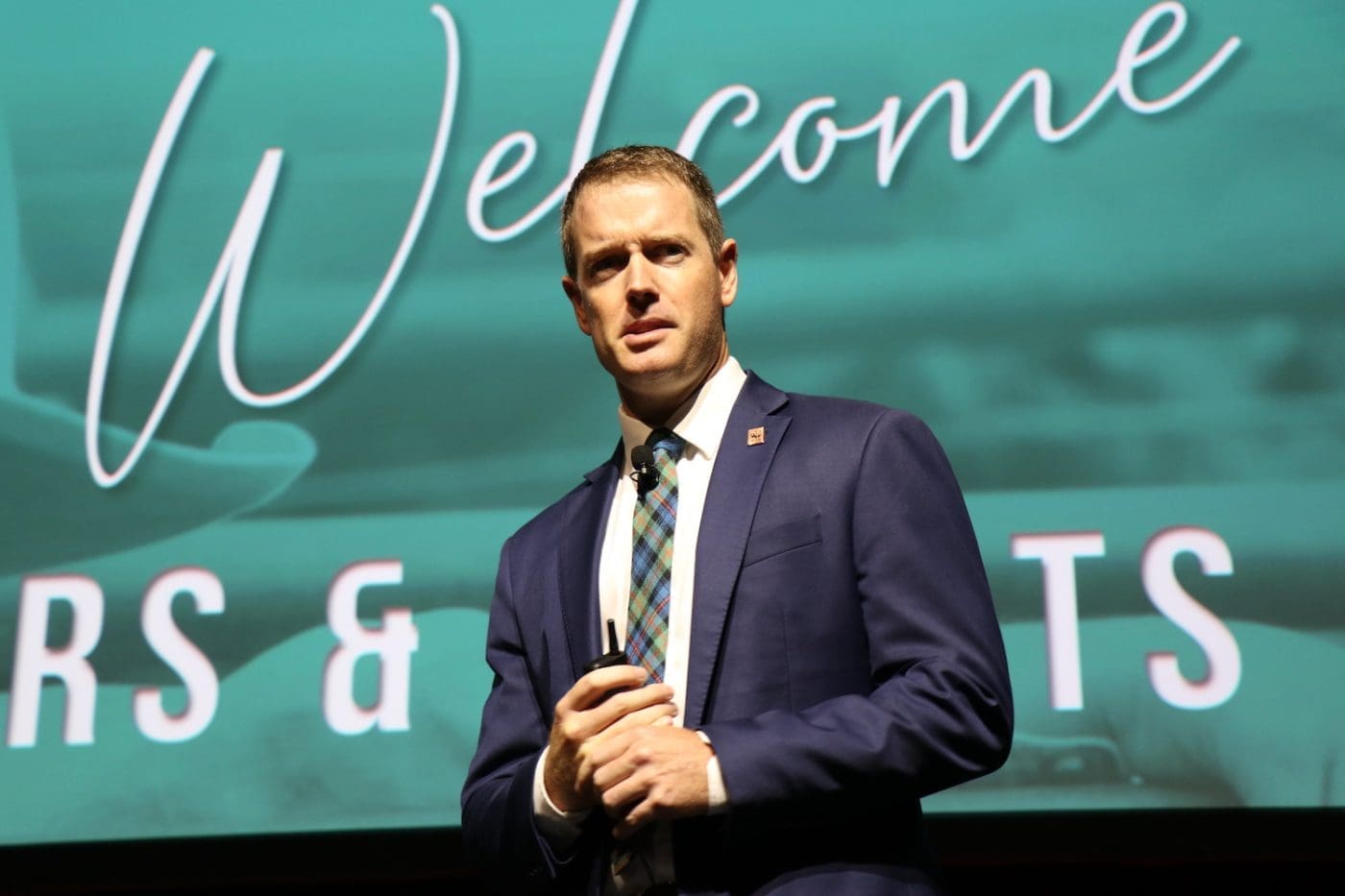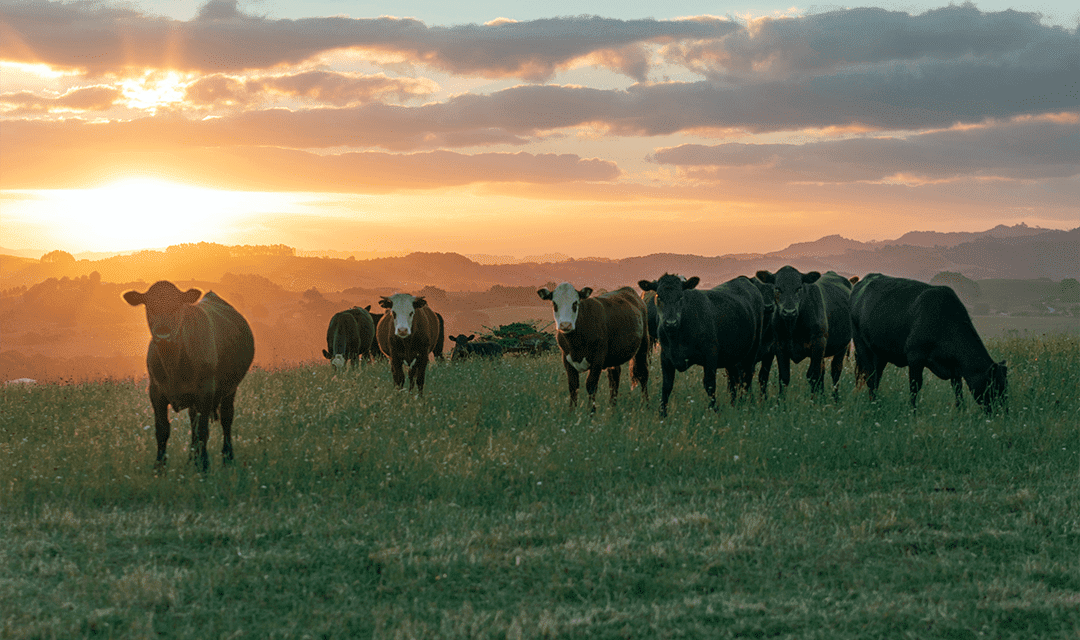Editors note: since this article was written the SBTi has clarified its position further on the use of offsets, with its statement published at the bottom. An original version of the article said the SBTi had banned the use of offsets, as opposed allowing companies to offset a maximum of five-10pc.
AN organisation which has been quietly setting a lot of beef industry targets has made a big shift in its position on carbon credits.
The Science Based Targets initiative is a partnership between the World Wildlife Fund and several organisations trying to influence global company environmental targets – including the UN Global Compact, CDP, We Mean Business and the World Resources Institute.
Many see the direction of the SBTi having more influence the beef industry than Government targets, with some of the biggest agricultural banks and supply chains signed up.
Last week, it made a significant change to its position on carbon credits – allowing for companies to purchase offsets from outside their supply chains to meet carbon goals.
The organisation launched its net zero standard in 2021, raising concerns about companies relying heavily on purchasing offsets to reach their targets. It put in guidelines to make companies focus more on reducing emissions within their own supply chains and said no more than five to 10 percent of emissions should be offset by carbon credits outside supply chains.
With the SBTi encouraging carbon reductions to come form within supply chains, many have been trying to find ways of accounting for that – coming up with a concept called “insetting”.
But in a statement form the board last week, SBTi has decided it was exploring the idea of allowing companies to purchase offsets for the scope 3 emissions.
What does it mean for the cattle industry?
Some of the cattle industry’s biggest supply chains, including McDonald’s, Coles and Teys joint venture partner Cargill are signed up to the SBTi – with on farm emissions, particularly livestock methane, falling under their scope 3 emissions. Scope 3 emissions are from activities not owned or controlled by a company but associated with the supply chain.
Many opinions have been expressed about the push towards insetting, with some saying it is a chance for supply chains to work together and tell the story of the beef industry and others concerned it could devalue work of producers making an effort to sequester carbon and turn a carrot into a stick.

Ian McConnel addressing the 2019 Northern Territory Cattlemens’ Association conference in Darwin earlier in March.
Global Roundtable for Sustainable Beef executive committee member and consultant Ian McConnel said the latest change was a double-edged sword for the industry.
“It creates more competition for carbon sequestration on farm which provides a lot of opportunity at the farm level,” Mr McConnel said.
“From a supply chain perspective, they will have to compete with outside companies to buy the carbon sequestration which will make it hard for our products to be seen by consumers as carbon or climate friendly.”
Mr McConnel said there was still a lot of unknown on how the SBTi will instigate the changes, and to what extent, with a consultation period coming up.
He said most of the livestock-related companies signed up to the SBTi are looking at a 30pc emissions reduction by 2030 – with some more and less ambitious – with the scope 3 emissions focused more on efficiency than a total reduction.
“It is not as onerous as some people think, it is 2.4pc improvement on efficiency from 2016 and a lot them are getting close with genetic gain and traceability in their supply chains,” he said.
Where next for carbon offsets?
The SBTi’s move has been controversial, with several media outlets reporting that the organisation’s staff wrote to the board asking them to step down.
Their main concern is that it could encourage companies to greenwash, by allowing them to purchase carbon offsets and not directly invest anything into reducing their own emissions.
Carbon offsets have been controversial across the world, with an international system called Verra coming under sustained criticism for the offsets it was approving – forcing the CEO to stand down last year.
Australia’s own system has had criticism, with a group of scientists from the Australian National University labelling the system a fraud, sparking a review and series of changes. The review found no issue with the integrity of the credits – a finding still disputed by the ANU scientists.
The SBTi’s statement said under the right settings, carbon offsets were part of the solution for companies.
“While recognising that there is an ongoing healthy debate on the subject matter, SBTi recognises that, when properly supported by policies, standards and procedures based on scientific evidence, the use of environmental attribute certificates for abatement purposes on Scope 3 emissions could function as an additional tool to tackle climate change,” it said.
“SBTi will not embark in validating carbon credits quality. Other entities are better positioned to deal with this activity. SBTi will enable all validating entities to have clear access and complete understanding of the demand side guardrails and rules established by SBTi for this purpose.
In the case of company targets, Carbon Market Institute chief executive officer John Connor said discussion about the use of carbon credits and other market-based certificates were important.
“In some cases, there is no doubt that flexibility is required where companies have limited control and influence over decarbonisation efforts within their supply chains,” Mr Connor said.
“However, this cannot be a substitute for transformative strategies and partnerships to effect emissions reductions across their value chains.”
Australia’s carbon market would likely exist without demand from companies voluntarily setting targets, as the Government has legislated many big emitting companies to offset excess emissions.
Mr Connor said it was still important for supply chains to work together to reduce emissions.
“A credible corporate transition requires concerted efforts to address all emissions, including Scope 3 supply chain emissions associated with suppliers and the impact of products and commodities on downstream markets.
“As one of the world’s top exporters of downstream emissions, the risks associated with scope 3 emissions are particularly acute for the Australian business community.
“Scope 3 emissions are inherently complex for businesses to manage and disclose and it is therefore important that best practice guidance and regulation facilitates a pathway towards greater corporate action.
“CMI’s new Member and Sponsorship Policy that was launched in March balances the need to address Scope 3 emissions and the challenges associated with that task.”
- The SBTi is planning to publish a discussion paper in July
SBTi board releases updated statement
“The Board’s statement on 9 April was a strategic steer to further explore the role that Environmental Attribute Certificates may be able to play in climate mitigation, as part of the process of revising SBTi’s Net Zero Standard.
The Board of Trustees acted according to their remit to set the strategic direction for SBTi, while respecting the organization’s standard operating procedures.
Crucially, the Board will continue to secure that any potential use of market instruments will include guardrails, rules and thresholds that will ensure the global emissions decline, in the near and long term.
The Board acknowledges that this is a sensitive area and regrets that the statement was open to misinterpretation. The Board’s commitment to the Standard revision process and consultation with all relevant stakeholders is unwavering.”


